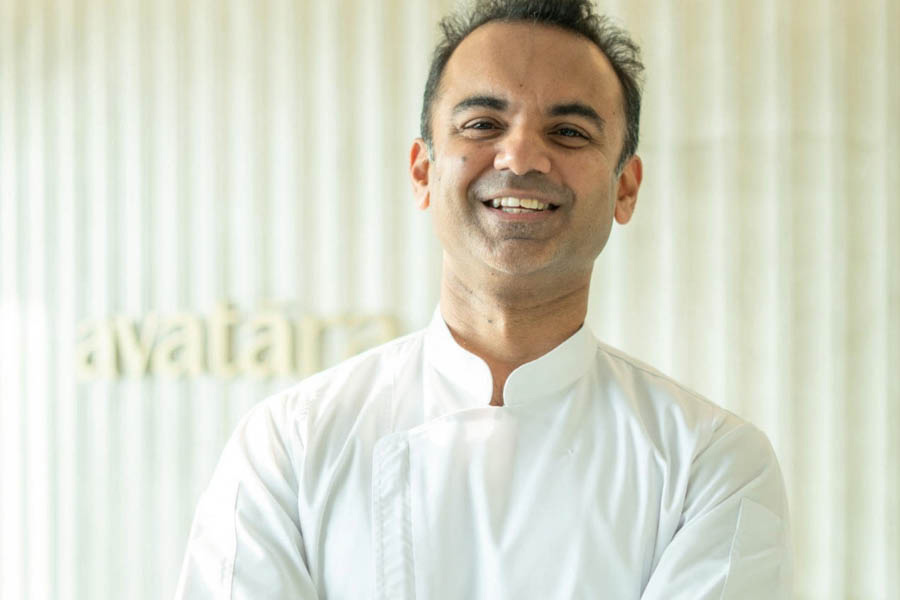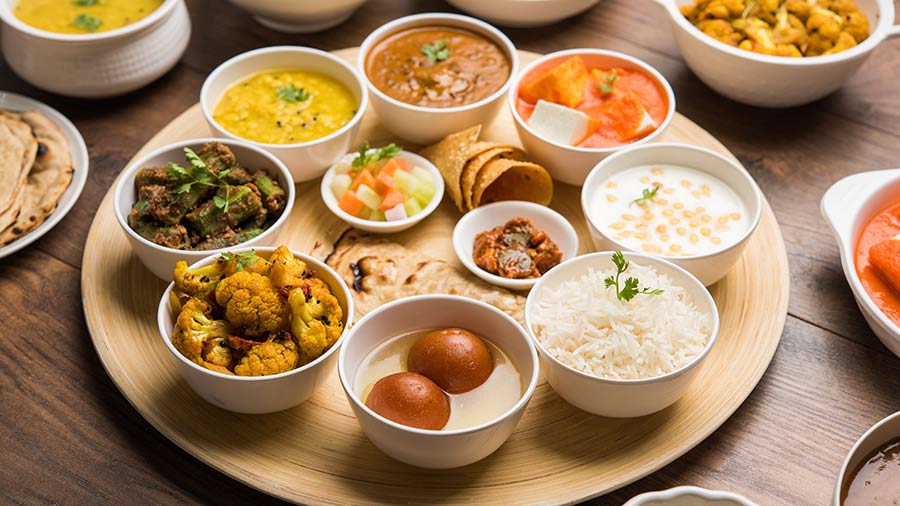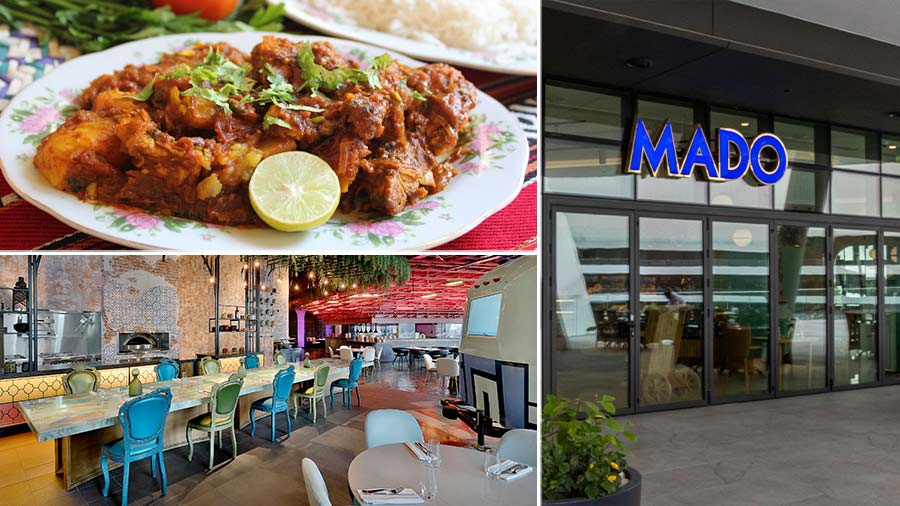Sanket Joshi is the executive chef at Avatara Mumbai. Avatara’s flagship outlet in Dubai holds the distinction of being the world’s first entirely vegetarian restaurant to earn a Michelin star. In fact, it did so within a year of its opening in 2022, retaining its one star in 2024. Avatara is celebrated for its unassuming modern Indian vegetarian menu that excludes onion, garlic and mushrooms. The Mumbai outpost opened in Santacruz West in April 2024.
A pivotal tastemaker for Avatara, Joshi’s career spans roles at Delta, ITC, Sofitel, Tresind Dubai and The Oberoi Group. My Kolkata caught up with Joshi to understand more about his inspiration in the food industry, what’s on offer at Avatara, and the future of tasting menus in India. Edited excerpts from the conversation:
My Kolkata: When and how did your role in Avatara’s journey begin? Does Avatara’s success as an entirely vegetarian restaurant in Dubai come as a surprise to you?
Sanket Joshi: I started my journey with Passion F&B (the group behind Avatara) back in 2017 with their flagship brand Tresind in Dubai. The brand’s creativity was inspiring and kept me on my toes to keep innovating. I came back to Mumbai in 2019 due to a family emergency. Somewhere I kept missing the exposure to innovation and creativity. Avatara was already planning to open in Mumbai, and I guess manifestation played its part, when Avatara Dubai’s corporate chef Himanshu Saini and executive chef Rahul Rana approached me (Joshi joined Avatara Mumbai in September 2023).
As for Avatara’s success as an entirely vegetarian restaurant, yes, it does surprise me. Especially because running a vegetarian tasting menu in a place (Dubai) that is primarily meat-focused can be challenging. Frankly, I’m pleasantly surprised to see people in Dubai accepting our food and flavours wholeheartedly!

The often-overlooked bitter gourd is transformed into a culinary masterpiece with ghee roast karela, mango sambhar gelato, and a dosai crisp @avataramumbai/Instagram
What sets Avatara apart from other Michelin-starred counterparts?
At Avatara, be it in Mumbai or Dubai, we are elevating the vegetables that we were once forced to eat as kids. Also, what sets us apart is the fact that we are doing modern Indian vegetarian food without onion, garlic or paneer and mushroom at a global level.
What’s unique about Avatara Mumbai?
The food at Avatara Mumbai is more robust, as we are predominantly serving Indians whose palates are largely accustomed to the flavours and understanding of the ingredients. In this context, we need to cater more carefully, as many flavours or dishes hold some kind of memories for our guests. There’s often a nostalgia factor at play. On the other hand, in Dubai, the food tends to be a bit milder as we are catering to a more diverse clientele.
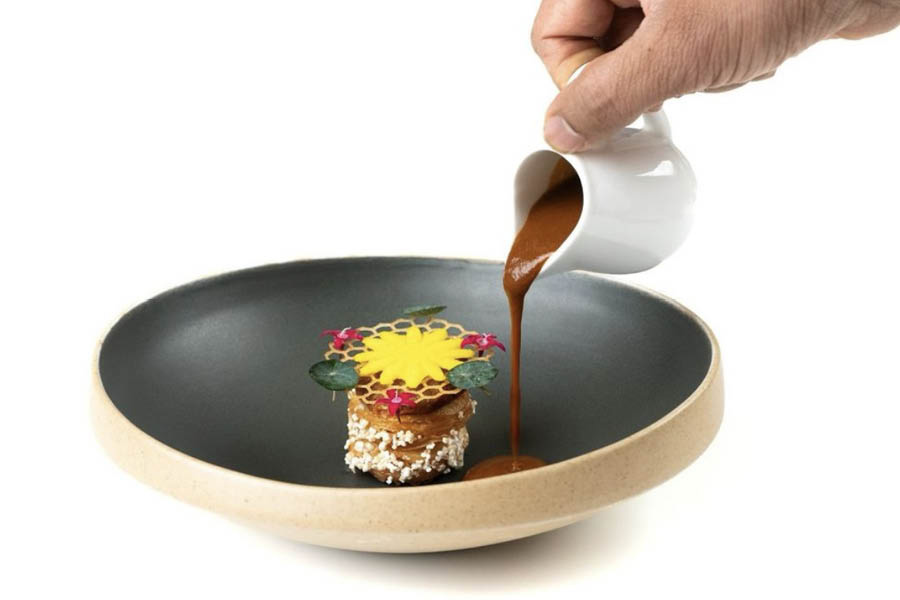
The humble turnip takes centre stage in Avatara’s Grinjanah dish, elevated by the robust flavour of rajma @avataramumbai/Instagram
Tell us a bit about the mocktail programme you run at Avatara? Why are wines the only spirits you focus on?
We’re more focused on the mocktail programme at Avatara Mumbai. We also have our in-house fermentation programme called Kinvit (in Sanskrit, it means fermentation). At Avatara, we do multiple flavours and textures, so wines complement them very well and they enhance the overall flavour palate of the dish. Also, wine pairing is still a growing concept in India. One of the most unique wine experiences we have is the aroma master, where our sommelier takes you through the journey of the aromas of wine you are experiencing.
Coming to your journey, which restaurant/chef has inspired you the most? Which concept(s) did you get attracted to in the food industry to begin with?
Sanjeev Kapoor was an inspiration growing up. The exposure to food and the understanding of basic cooking through his shows like Khana Khazana gave me an in-depth understanding of Indian food.
The concept of street food is what triggered my love for food and pushed me to become a chef.
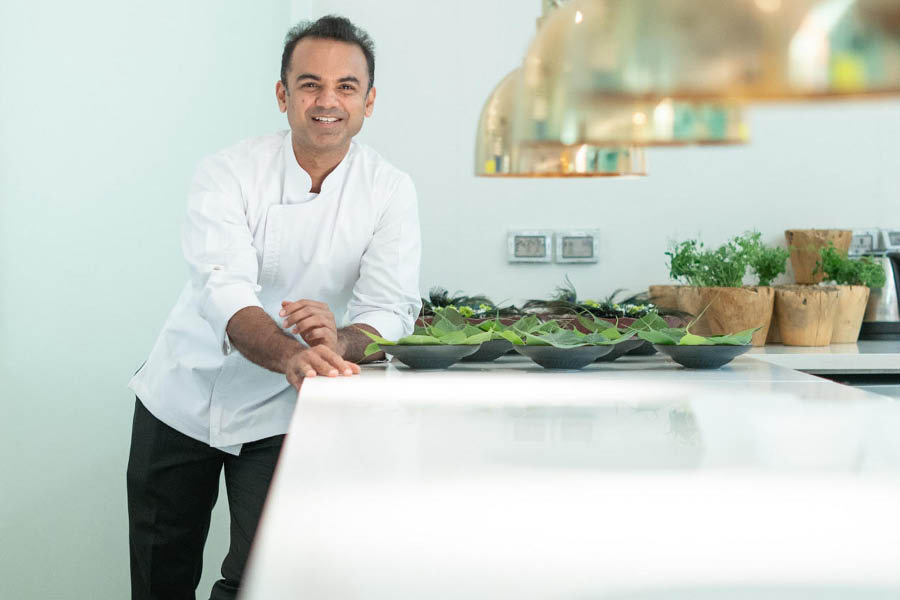
Redefining regional dishes at a global level is the motto at Avatara Sanket Joshi
How has the innovation and experimentation culture at Avatara shaped you as a chef?
Avatara is the reincarnation of soulful Indian food, where we are showcasing those vegetables that are frequently neglected, as well as those that are not everyone’s favourite because of their flavour profile. We are redefining regional dishes at a global level. Avatara has shown that vegetarian food is more than just paneer and mushroom. As a chef, it has made me break boundaries and opened a new horizon to experiment with vegetables and regional cuisine at a fine dining level.
One food trend that’s extremely popular right now is tasting menus. What makes tasting menus appealing, and why is India’s elite eager to try them?
I believe this trend is here to stay, as tasting menus give exposure to a variety of flavours and textures in optimal portions. A tasting menu takes you through a diverse journey of different tastes and flavours from different regions. It’s not just for the elite; tasting menus are now opening a window for everyone to explore.
The ‘Experience Menu’ at Avatara Mumbai is priced at Rs 4,500 excluding taxes. Can tasting menus become more affordable in the future?
The trend for tasting menus in India is just picking up. Since most of the restaurants are ingredient and product-driven, we believe in sourcing ingredients from their actual source. We source many ingredients regionally. For example, hing comes from Manali while rajma comes from Kashmir. To manage the logistics, we are highly dependent on the economic factors at play, as the prices of ingredients are always fluctuating.
Lastly, as a non-vegetarian yourself, what about vegetarian cuisine attracts you?
As a non-vegetarian I feel we are restricted to cooking with specific produce. The focus is always to experiment with meat, seafood and poultry. Whereas, in vegetarian cuisine, we have an abundant source of vegetables, pulses and legumes to experiment with. There are many unexplored vegetables and ingredients waiting to be placed on the plate.
